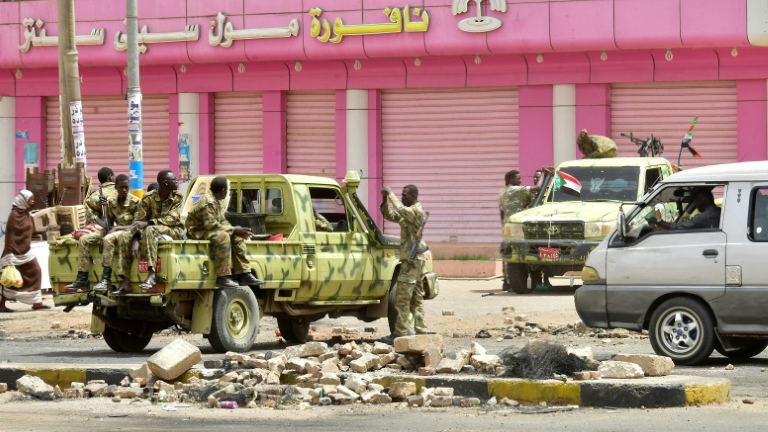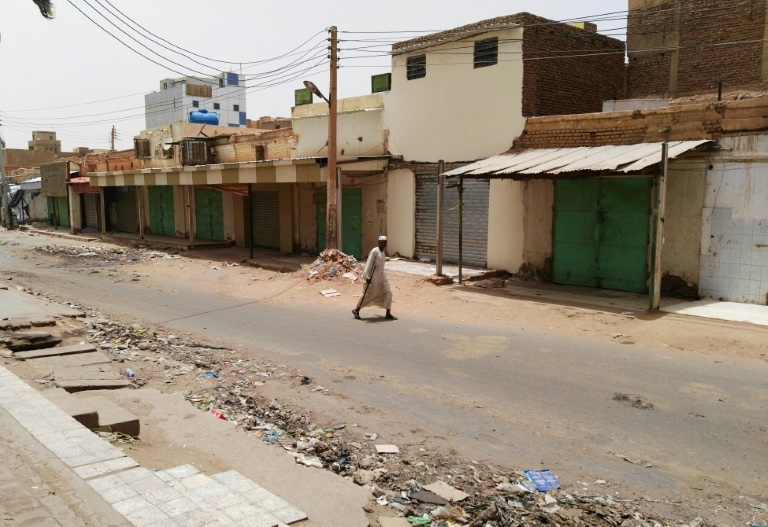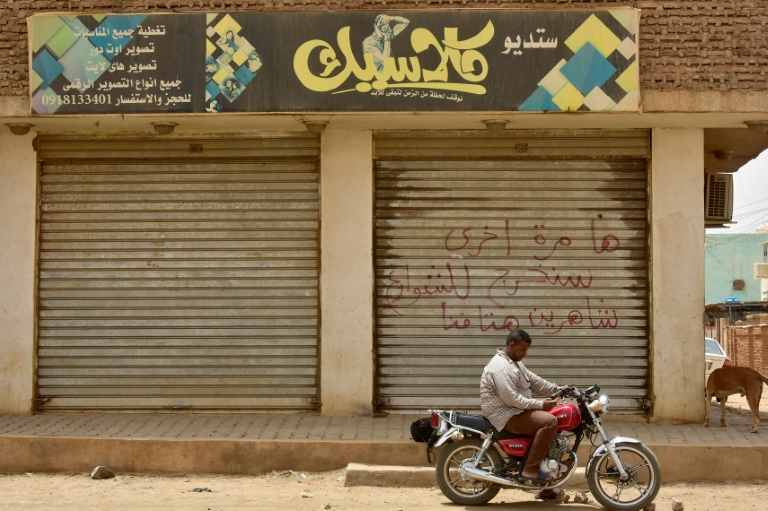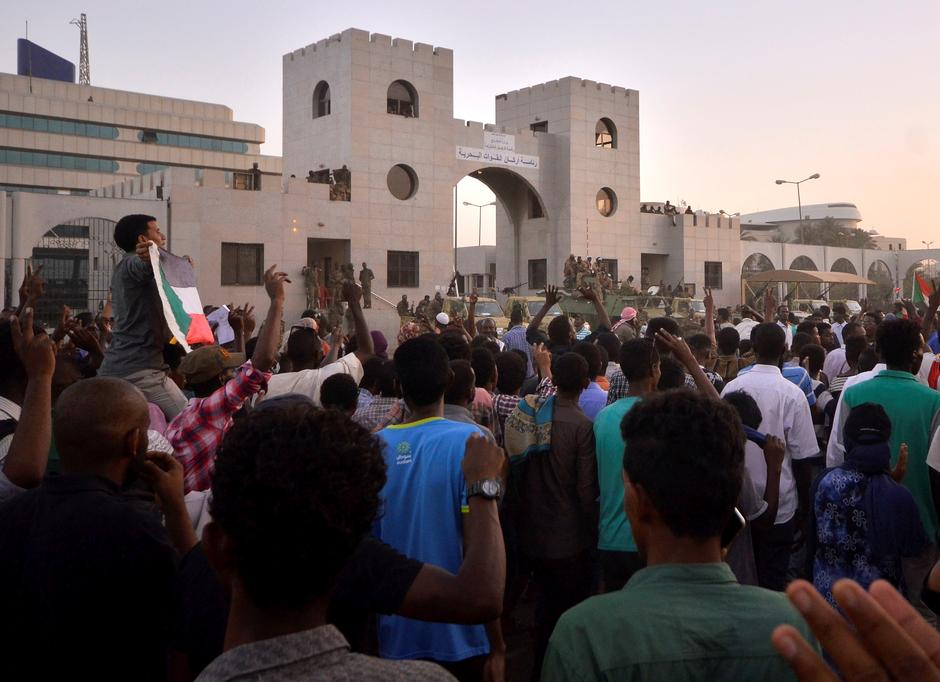
Africa
11:07, 10-Jun-2019
Four dead in Sudan a week after bloody crackdown
CGTN

Four people were killed in Sudan as security forces moved to quell a civil disobedience campaign launched on Sunday, a week after dozens died in a crackdown on protesters demanding civilian rule.
The deaths marked almost two months since the April 11 ouster of longtime ruler Omar Al Bashir, as talks broke down between protest leaders and military rulers over who should lead a new governing body – a civilian or soldier.
Protesters set about building roadblocks in Khartoum, while markets and shops were closed in other towns and cities.
A doctors' committee linked to the demonstrators said two people were killed in clashes in the capital, while two others died in its twin city of Omdurman, just across the Nile.
The Central Committee for Sudanese Doctors blamed forces supporting the ruling military council for the deaths, which it said took the overall toll to 118 since a June 3 crackdown to disperse a sit-in by protesters outside army headquarters.

A Sudanese man walks past closed shops in a deserted street in Khartoum's twin city Omdurman on the first day of a civil disobedience campaign across Sudan, June 9, 2019. /AFP Photo
A Sudanese man walks past closed shops in a deserted street in Khartoum's twin city Omdurman on the first day of a civil disobedience campaign across Sudan, June 9, 2019. /AFP Photo
The health ministry said 61 people died nationwide in last Monday's crackdown, 49 of them from "live ammunition" in Khartoum.
In the capital's northern Bahari district, people gathered tyres, tree trunks and rocks to build new roadblocks as the campaign began early on Sunday.
But riot police swiftly moved in, firing gunshots in the air and tear gas at demonstrators before clearing the makeshift barriers, a witness said.
"They opened the way, we closed it again, they opened it, we re-closed it. It was a game of cat and mouse," said one protester, a 20-year-old mechanical engineering student.
The Sudanese Professionals Association, which first launched protests against Al Bashir in December, said the campaign would continue until military rulers transfer power to a civilian government.
In Bahari district, onlookers saw a police truck full of people in civilian clothing, but it was not possible to confirm whether they were detained demonstrators.
Generals blame protesters

A Sudanese man sits on a motorbike in front of a closed shop in Khartoum with writing on its shutters that reads: "Another time, we shall take to the streets, crying out our demands loudly". /AFP Photo
A Sudanese man sits on a motorbike in front of a closed shop in Khartoum with writing on its shutters that reads: "Another time, we shall take to the streets, crying out our demands loudly". /AFP Photo
Several protesters said they faced difficulties but were still backing the campaign.
"The roadblocks prevented me from reaching the market to buy vegetables," said Hassan Abdelrahim, a vegetable vendor.
"This will impact my income, but when I look at these youngsters who are on the streets since six months, I'm not angry even if I lose my income."
The military blamed protesters for the deteriorating situation and vowed to deploy security forces to restore order.
The ruling military council "regrets the behavior" of the protest movement, Lieutenant Colonel Jamaleddine Omar of the military council in a statement broadcast on state television Sunday.
"The Military Council has decided to reinforce the presence of armed forces, RSF and other regular forces to help normal life return," he said.
Khartoum residents have mostly remained indoors since Monday, when men in military fatigues raided the protest camp.
Several vehicles of the feared Rapid Support Forces, blamed by witnesses for the killings at the sit-in, were seen Sunday in various parts of Khartoum, riding pickup trucks mounted with machine guns.

Sudanese demonstrators chant slogans as they attend a protest rally demanding Sudanese President Omar Al-Bashir to step down, Khartoum, Sudan, April 9, 2019. /Reuters Photo
Sudanese demonstrators chant slogans as they attend a protest rally demanding Sudanese President Omar Al-Bashir to step down, Khartoum, Sudan, April 9, 2019. /Reuters Photo
"Security in Sudan now is worse than during Al Bashir's regime," said leading journalist Osman Mirghani.
"But the protest movement has become stronger. It has the backing of people on the streets after the way the sit-in was dispersed. That bloodshed was a crime."
Several airlines have scrapped their Sudan flights since the deadly raid and passengers were left waiting outside Khartoum airport's departures terminal Sunday, although it was unclear whether any flights would take off.
The downtown business district was largely shut and buses were not running in several areas, but private vehicles were ferrying passengers in some locations.
In Omdurman, many shops and markets remained closed but people were seen buying provisions at some grocery stores.
"Troops were also seen removing roadblocks from some streets in Omdurman," a witness said.
(With input from AFP)

SITEMAP
Copyright © 2018 CGTN. Beijing ICP prepared NO.16065310-3
Copyright © 2018 CGTN. Beijing ICP prepared NO.16065310-3